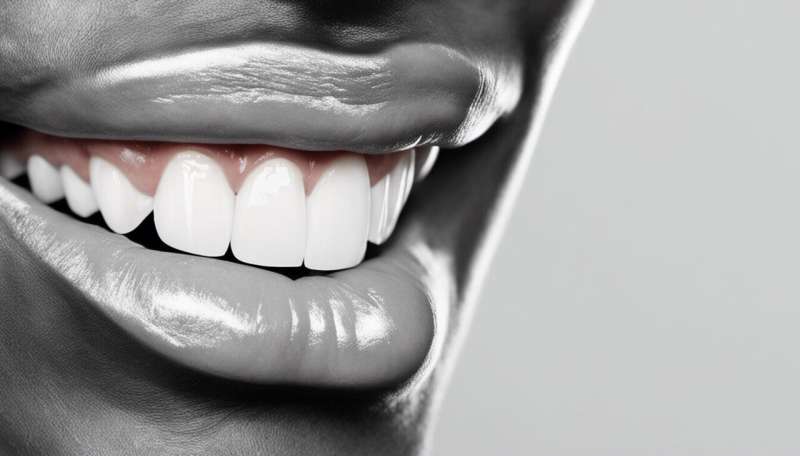Charcoal and white teeth

Charcoal seems to be the latest thing—for cleansing your face and purifying your insides—and even brushing your teeth. But before you start using a charcoal-based toothpaste, it's best to realize that claims that it results in whiter and brighter teeth are unproven, and it may in fact be harmful. It's not among the small number of whitening products that have received the American Dental Association Seal of Acceptance, given after scientific evaluations for safety and effectiveness.
To learn more about charcoal toothpastes and other whitening products, Tufts Now spoke to Aikaterini Papathanasiou, director of the Advanced Education in Esthetic and Operative Dentistry program at the Tufts School of Dental Medicine.
Tufts Now: What do we know about using charcoal toothpastes to whiten teeth?
Aikaterini Papathanasiou: Many of these products are overly abrasive and can take away the outer layer of your tooth called the enamel. That abrasion could create sensitivity, expose the darker dentin underneath, and create a rough tooth surface that can absorb more stains—the exact opposite of what you're trying to do.
Is there any scientific evidence to back up claims made for charcoal products?
There is currently no scientific evidence that shows that these products are safe or effective for your teeth. There was a review published in the Journal of the American Dental Association in late 2017 that concluded that we need clinical trials and lab studies to determine if it's safe and effective. We urge caution when using these products.
Why do teeth change color?
Teeth change color due to food, drinks, tobacco use, age, trauma, and several types of medication. Anything that would stain your white shirt could stain your teeth.
What do you suggest we do to keep our teeth healthy and bright?
Brush and floss twice a day. Avoid teeth-staining foods, drinks, and habits like smoking. Teeth whitening can be done safely and effectively when using the right products, particularly those approved by the ADA. Use an ADA-approved fluoride-based whitening toothpaste to remove superficial stains. If you're interested in more extensive tooth-whitening treatment, visit your dentist to talk through what might be best for you—a professionally-monitored take-home treatment and/or in-office tooth whitening options.
More information: John K. Brooks et al. Charcoal and charcoal-based dentifrices, The Journal of the American Dental Association (2017). DOI: 10.1016/j.adaj.2017.05.001





















